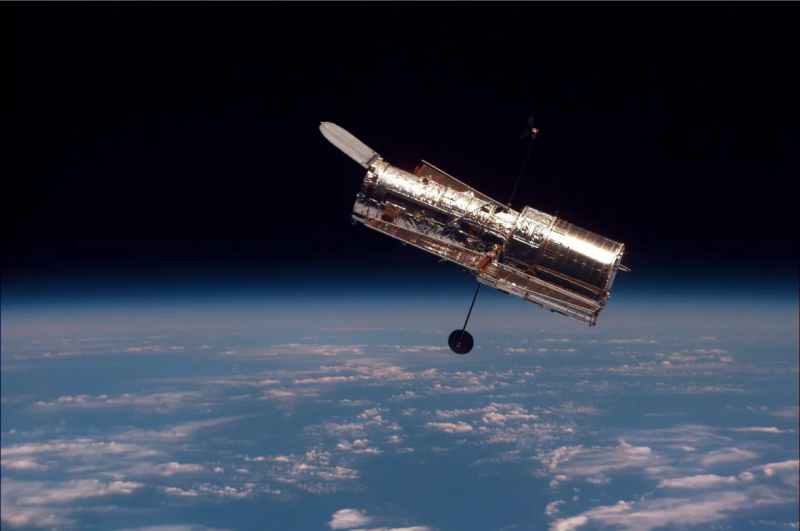The Hubble Space Telescope, an icon of space exploration and scientific discovery, has been orbiting Earth for over three decades. Its stunning images of distant galaxies and stars have not only captivated the world but also significantly advanced our understanding of the universe. However, the telescope is slowly descending towards Earth and, without intervention, is expected to re-enter the atmosphere and disintegrate around 2034.

1Hubble Space Telescope Credit -NASA
In a bold move, Jared Isaacman, a private astronaut who has previously orbited Earth in a SpaceX capsule, has proposed a private mission to extend Hubble's life. Isaacman, who has contracted three more space flights with SpaceX, including the first-ever commercial spacewalk, has offered to fund a maintenance crew to Hubble. This initiative could potentially save NASA hundreds of millions of dollars and extend the telescope's operational life by improving its ability to point at celestial objects and boosting its orbit.
While the proposition seems like a win-win situation, it has raised concerns within NASA. Internal emails obtained through a Freedom of Information Act request reveal that Hubble experts have expressed reservations about the risks involved. The primary concern is the potential harm that could come to the telescope. Past servicing missions have always adhered to the principle of 'first do no harm,' and with Hubble still operational, the stakes are high.

Jared Isaacman
The feasibility of such a mission is also under scrutiny. NASA has been conducting a study since 2022, and although initially fast-tracked, the agency has remained silent on the matter. Isaacman's public comments suggest frustration, hinting at politics playing a role in the delay. He has argued that the mission should be a "no-brainer" and that any opposition may stem from a desire within NASA to maintain a monopoly over servicing Hubble.
The debate touches on broader issues of space exploration and maintenance. As private companies and individuals become increasingly involved in space, questions arise about the roles and responsibilities of public institutions like NASA versus private entities. The Hubble situation exemplifies the potential for collaboration but also highlights the complexities and risks associated with private missions to critical scientific assets.


Add comment
Comments
After the Columbia accident, NASA was willing to never go back to Hubble, because they felt it wasn't worth the risk.
NASA seems to struggle getting into space anymore while SpaceX is launching multiple times per week. I think its time NASA step aside.
Nasa isn't what it used to be. Given their way, they'll study the feasibility of a mission to Hubble until it burns up.
NASA has devolved into a bloated, expensive, inefficient bureaucracy riddled with politics and at the whims of politicians. It is amazing at times NASA is able to still come up with innovative approaches but that's due to some brilliant creative people, not the bureaucrats who lay claim to the credits.